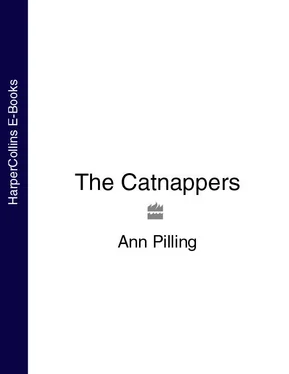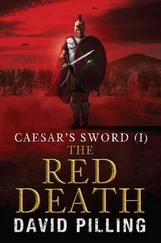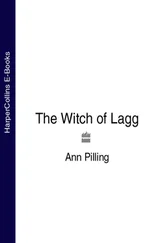“Now then,” she said, “we must keep the water topped up till it’s thoroughly cooked, and we must NOT let it boil dry.” She said this bit very loudly, as if poor Kitty was as deaf as a post. She wasn’t deaf, but it was true that she sometimes forgot things.
“When we leave this kitchen, we must both take our pingers with us,” continued Miss McGee. “Here’s yours, Kitty.” The “pingers” were things that made a noise when the food you were cooking was ready, or needed looking at. Kitty’s was a smart white one with digital numbers that shone in the dark. It was called Big Time and it bleeped rather than pinged. She had bought it one day in Mr Moat’s corner shop. He sold all kinds of useful items.
Sometimes they saw Debbie in the shop. Mr Moat was her mum’s brother and he was Debbie’s “Uncle Ted”. When it was the holidays, Debbie sometimes helped him, putting things in bags and weighing things, but it was so long since the old ladies had seen her, or her mum, they were beginning to wonder if they had left the town altogether and gone to live somewhere else.
Big Time was the latest thing in pingers. In her quiet wag, Kitty could be quite trendy. Miss McGee’s pinger was a wind-up red one and it was an old and trusted friend, like the feet bowl. It had timed many puddings.
The old ladies never stayed in the kitchen at boiling time because the process took ages and the room got much too hot and steamy. With their pingers in their pockets, they went off into their own parts of the house. Miss McGee’s was set to ping in half an hour when she would go and top up the water in the pan. Kitty’s was set to bleep half an hour later, when she would do the same. Turn and turn about, every half hour, they would make sure the precious pudding never boiled dry. Only Nicholas remained in the kitchen, curled up in his basket next to the cooker. He kept looking up at the boiling saucepan; he was better than any dog.
“He’s guarding our pudding,” said Miss McGee. “Good old Nicholas.”
“Good, dear cat,” whispered Kitty. “What would we do without you?”
Kitty had plenty of time to spare before Big Time bleeped so she went back to sit in her chair by the window and stared down into Golden Square. She was a patient sort of lady. She believed that if she stayed there long enough, something was bound to happen. It was just a question of waiting.
She had learned about waiting from Nicholas. He would sit for hours, patiently waiting for a mouse to creep out from under a table or chair, where it had gone to hide (19 Golden Square had quite a few mice). He knew that, if he waited long enough, the mouse would reappear in the end. He was a brilliant mouser. Miss McGee said that Nicholas’s paw control was the best she had ever come across, and she knew about cats because she’d been brought up on a farm. Kitty, who was a town person, had only ever known one cat, Nicholas, but she loved him with all her heart.
So did Miss McGee, but she never said it aloud, neither of them did, though each knew what the other was feeling. In this way, although very different from each other, the two old ladies were exactly the same.
Now perhaps Kitty had nodded off in her chair, or perhaps she had been looking away at the moment the person appeared on the scene. She couldn’t remember afterwards. But what was for certain was this: on the afternoon of the pudding boiling a real child appeared down in the garden, in the middle of Golden Square.
It was a boy and he was very small, about three years old perhaps. He had a red something on his top half, and a blue something on his bottom half, and a floppy yellow something on his head. From her upstairs window Kitty couldn’t see what any of these things were.
The minute she saw him, she stood up and made her way downstairs to the front door. From the hook where it had hung for years and years she took the large, heavy key which unlocked the gate into the gardens. She only had one pocket in her skirt and it was quite little so, to make room for the key, which she absolutely must NOT lose, she removed Big Time and put it on the hall table. After all, she would only be out of the house for a very few minutes.
Chapter Four
The spiky, black gate which let people into the garden was not only shut, it was locked. This meant that the little boy must have climbed over the spikes or that he had been lifted inside, and left there. Kitty did not approve of either of these things: the iron spikes were dangerous and the garden was lonely and the boy was very small indeed. She could see him clearly now; he was wearing a bright red jersey and ting, bright blue jeans and a floppy woollen hat the colour of a daffodil. Underneath, his hair was a great mass of golden curls; it looked as if he’d not yet had his first grown-up haircut.
Kitty unlocked the gate and went into the garden. She shut it behind her carefully, locked it again and walked up the path towards the child. “My name’s Kitty,” she told him. “I live at Number 19 with my friend Miss McGee and we have a cat called Nicholas. Do you have a pet?”
The small boy looked at her uncertainly. He had enormous, glossy brown eyes and a small, sweet mouth, all folded like the petals of a flower, but his lips were quivering. Kitty turned away, pretending she had lost all interest because she knew all about that particular look; it meant that he was about to cry.
Ignoring him, she started to poke about under the leafless shrubs on the edge of the little pond. “You find lovely things here,” she said, as if to herself (but just loud enough for the little boy to hear, which of course was the whole idea). “Look … here’s a lovely leaf that’s slowly turning into a skeleton … and here’s a perfectly round pebble … and here’s … here’s a frog! My goodness me …” The little boy was following her now and every time she bent down to look at something he bent down too. Round and round the garden they went, peacefully collecting things.
This game went on for quite a while but then it was as if the little boy suddenly remembered something quite different, or had decided to play his own game. He started to make a very particular kind of noise. “Chu … chu … chu …” and as he did so he lifted up the dry, twiggy branches of the shrubs, to peer underneath them. “Chu … chu … chu …” he kept calling.
“Is that a train game?” asked Kitty. “Can I play too? Chu … chu … chu …” she went, up and down the paths and round the pond. “We’re great big steam trains,” she told him, “we’re not silly diesels … chu … chu … chu …” But at this the little boy slowed down, shook his head very solemnly and began to chew his fingers. Then he let out the most enormous HOWL.
It was quiet in Golden Square, and already quite dark. There were no doctors or dentists around in any case, because it was Saturday. In the silence, the cry of the little boy felt as big as an earthquake, and Kitty panicked. “Please don’t cry, dear,” she said, going up to him. “Please don’t cry—” and then something suddenly burst out of the bushes, something resembling a big, red, flapping monster.
“Timothy!” it bellowed. “Timothy Joe! Come here this minute! We are terribly late. Your daddy’s been sitting in the car for a whole ten minutes and he’s extremely cross.”
Kitty took a few steps backwards. She didn’t like loud noises, or people that shouted. In this respect she was like Nicholas. But the red monster (who turned out to be a rather tall lady in a raincoat the colour of holly berries, with a red hat to match and curly fair hair), came right up to her. “What are you doing here?” she said, quite rudely.
“I … I live here,” Kitty whispered, her insides turning into wobbly snakes, as they tended to do when she was nervous. “I live at Number 19, with my friend Miss McGee. We are your neighbours. I was so pleased to see your little boy in the garden that I came down to say hello. It’s lovely to have a family in the square again. We so miss Debbie and her mum, you see. They’ve gone to live in the Town Flats, to escape the damp. Debbie was like a granddaughter to us.”
Читать дальше












